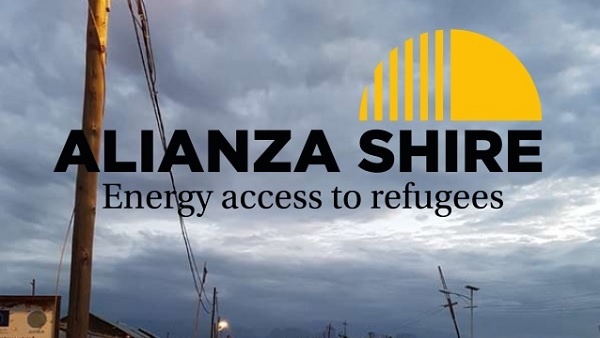
The refugee agency, UNHCR, has launched a four-year strategy to transition to clean energy in all of its refugee camps, although no fixed deadline or price tag is not offered for doing so
By Lisa Bryant (VOA News)
GENEVA – In northern Ethiopia, tens of thousands of mostly Eritrean refugees are getting connected — to families back home, partly thanks to last year’s peace deal between Addis Ababa and Asmara, but also connected to clean energy.
A Spanish alliance that includes three power companies is linking refugee camps in Shire, near the border with Eritrea, to the country’s energy grid, which largely relies on hydropower. The next step is equipping refugee households with solar energy.
“It’s a catalyst,” said Javier Mazorra, partnership coordinator for the group, Alianza Shire. “You need energy for health, you need energy for education, you need energy for protection, especially for women.”
Humanitarians hope what is happening in Shire will someday become the new normal, amounting to a game changer for refugees, 90% of whom have limited access to electricity, according to the United Nations. Indeed, energy access counted among key issues addressed this week at a global refugee forum in Geneva, with Africa considered a top priority.
“The current situation in Africa is pretty poor, pathetic,” said Andrew Harper, climate action special adviser for the U.N. High Commissioner for Refugees (UNHCR), which co-hosted the meeting.
Often refugees have a single energy solution, “which is going to surrounding forests, woodland, and cutting it down,” Harper said.
Greening Africa’s energy
The refugee agency, UNHCR, has launched a four-year strategy to transition to clean energy in all of its camps, although Harper offered no fixed deadline or price tag for doing so. A UNHCR-sponsored report out this week also found renewable energy to be a cost-effective and reliable energy source for refugees.
For Africa in particular, the stakes are high — inside and outside refugee settings. Along with Asia, it has among the world’s highest rates of reliance on charcoal and firewood. Adding in charcoal exports, that has translated into massive deforestation in parts of the continent.
Firewood- and charcoal-based energy also carry myriad other problems, posing health risks from smoky fires and security threats for women collecting firewood, and heightening tensions between refugees and host communities who also rely on the fast-thinning trees.
Many of these problems can be seen in East Africa, home to some of the continent’s largest refugee communities.
“There are some energy solutions,” said Kathleen Callaghy, senior humanitarian program associate for Clean Cooking Alliance, a Washington, D.C.-based nonprofit. “But the funding, the political will and the capacity of organizations in the humanitarian community is not enough to sustain or expand these projects over time.”
Continue reading this story at VOA News
